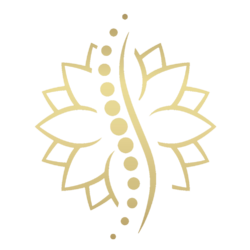Getting the best out of sport.
Taking part in sport or keeping fit can be rewarding, improve your health and reduce your risk of serious illnesses, such as heart problems, stroke or cancer. It can also help maintain your weight and improve your self-esteem. Adults between the ages of 19 – 64 are advised to do at least 150 minutes of moderate-intensity aerobic activity per week. This can include activities like brisk walking, cycling or aqua aerobics. It is also recommended to perform exercises to strengthen all the main muscle groups (arms, legs and body) twice a week.
Even if you are active regularly, you should also aim to minimise the amount of time you spend sitting for extended periods. Sport has become a way of life for many in the UK, with participants ranging from elite athletes to those who just want to keep fit. But what happens if you get an injury?
Participating in sports too often or too hard may result in an injury. Failing to warm up properly beforehand, or warm down and stretch after exercise may also result in strains. Using inappropriate equipment or wearing the wrong footwear may likewise, hinder your performance. An unresolved injury, which might not even be related to sport, can make it difficult to even get started.
How can your osteopath help?
It is common to feel some minor discomfort after training, as the body takes a little time to recover and adapt to the demands of activities. Soreness often quickly resolves itself but occasionally, may persist for more than a few days or make it difficult for you to continue your normal activities. In these instances, you may want to seek advice from an osteopath.
Osteopathic care is based on the individual needs of the patient and so varies depending on age, fitness levels and diagnosis. Osteopaths use a wide range of gentle hands-on techniques, focusing on releasing tension, stretching muscles and mobilising joints. These are often used with exercise and helpful advice, together with strapping or taping, all of which are designed to relieve pain, help return to normal activity levels and maintain the best of health. As well as treating injuries, osteopaths may offer advice about optimal nutrition or suggest a sport-specific diet.
The good news is that although sports injuries are common, those who are active and have experience of following exercise routines may find they recover more quickly and easily from their injuries.
How can you help yourself?
- Begin your activity slowly and build up intensity, especially after an injury
- Drink plenty of water when you are thirsty, especially if exercising
- Exercise regularly and try to vary the types of exercise you do for all over body fitness
- If you believe you have injured a limb, then rest, ice, compression and elevation may help, but seek advice if you are worried
- Normal soft tissue healing time can be up to 12 weeks (if no other injuries occur). If you’re worried at all about an injury in the short, medium or long term it is worth seeking further advice.

What to expect
Osteopaths are highly trained professionals who are skilled in diagnosing health issues, including those that may require further investigation. When first visiting an osteopath, they will ask about current symptoms and medical history. All information will be treated as confidential in accordance with the standards of practice set out by the General Osteopathic Council (GOsC) and the General Data Protection Regulation (GDPR), May 2018.
It is natural to worry about symptoms and the cause. An osteopath will always complete a routine examination that checks for more serious diagnoses, advising and discussing any further action that might be required. After this examination, an osteopath will discuss treatment options and you will then jointly decide an appropriate and suitable treatment plan, along with any likely associated costs. This plan may involve several visits and, very occasionally, further tests and/or referrals to another appropriate health care professional. Treatment may begin at the first appointment. There may be some mild discomfort afterward, but in most cases, this will pass within 24 hours.


